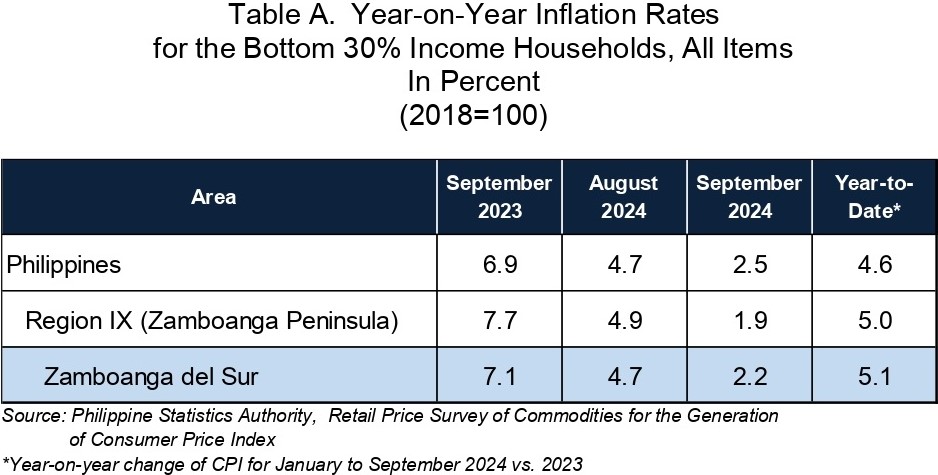
1. Overall Inflation
Zamboanga del Sur’s inflation for the bottom 30% income households decreased to 2.2 percent in September 2024 from 4.7 percent in August 2024. In September 2023, inflation rate was posted at 7.1 percent. (Tables A and B, and Figure 1)
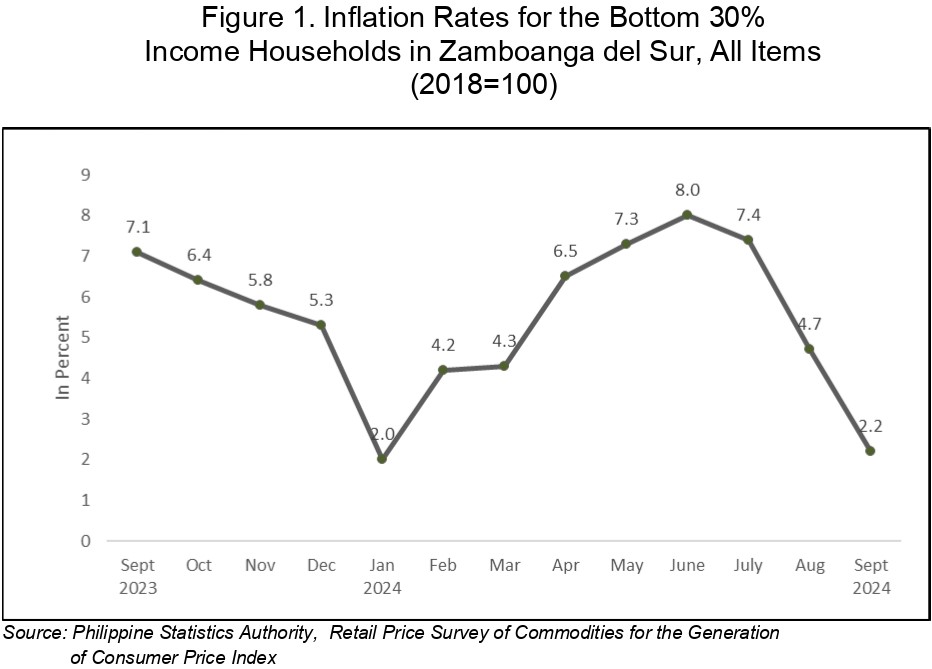
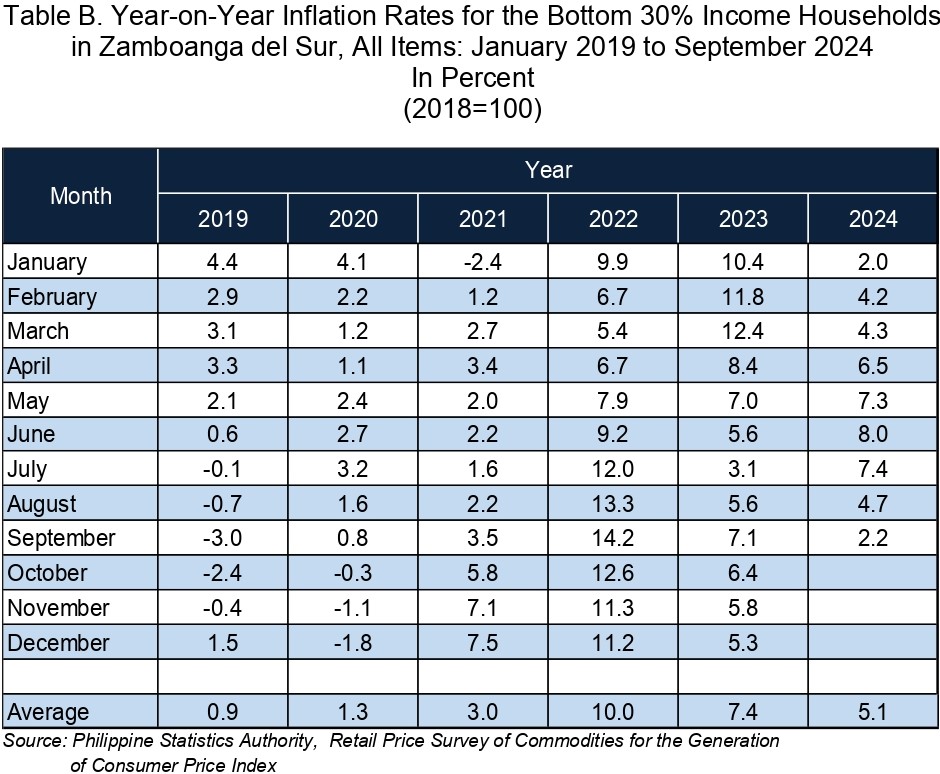
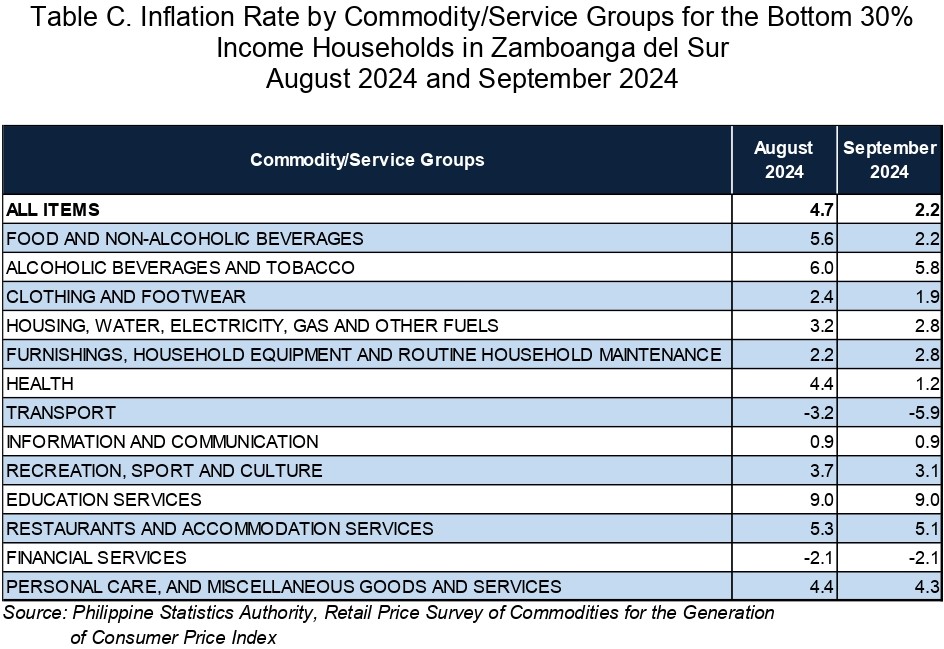
1.1 Main Drivers to the Downtrend of the Overall Inflation
The main driver of the downward trend of the overall inflation for this income group in September 2024 was the slower year-on-year increase of food and non-alcoholic beverages at 2.2 percent from an annual rise of 5.6 percent in the previous month. This was followed by transport which posted an annual decline of 5.9 percent from an annual decrease of 3.2 percent; and housing, water, electricity, gas and other fuels at 2.8 percent from 3.2 percent in August 2024.
Moreover, lower annual rates were noted in the indices of the following commodity groups during the month:
a. Alcoholic beverages and tobacco, 5.8 percent from 6.0 percent;
b. Clothing and footwear, 1.9 percent from 2.4 percent;
c. Health, 1.2 percent from 4.4 percent;
d. Recreation, sport and culture, 3.1 percent from 3.7 percent;
e. Restaurants and accommodation services, 5.1 percent from 5.3 percent; and
f. Personal care, and miscellaneous goods and services, 4.3 percent from 4.4 percent.
On the contrary, the index of furnishings, household equipment and routine household maintenance exhibited a higher annual increase of 2.8 percent during the month from 2.2 percent in August 2024.
The indices of information and communication; education services; and financial services retained their previous month’s annual increment. (Table C)
1.2 Main Contributors to the Overall Inflation
The top three commodity groups contributing to the September 2024 overall inflation were the following:
a. Food and non-alcoholic beverages with 65.3 percent share or 1.44 percentage points;
b. Housing, water, electricity, gas and other fuels with 13.4 percent share or 0.30 percentage point; and
c. Restaurants and accommodation services with 9.6 percent share or 0.21 percentage point.
2.0 Food Inflation
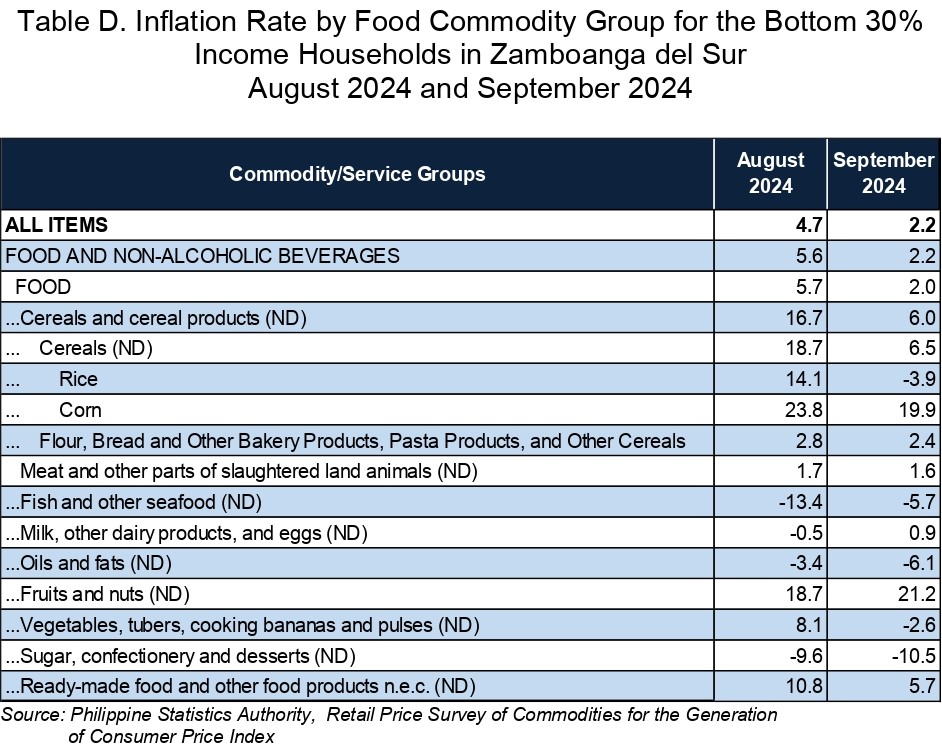
Food inflation for the bottom 30% income households in the province decreased to 2.0 percent in September 2024 from 5.7 percent in the previous month.
2.1 Main Drivers to the Downward Trend of Food Inflation
The deceleration of the food inflation in the province was mainly brought about by the slower annual increase in the cereals and cereal products index at 6.0 percent during the month from 16.7 percent in August 2024. Also contributing to the downtrend is the faster annual decline in the index of vegetables, tubers, plantains, cooking bananas and pulses at a decline of 2.6 percent during the month from an annual increase of 8.1 percent. The slower annual increase in the index of ready-made and other food products at 5.7 percent from 10.8 percent also contributed to the downtrend.
Moreover, lower annual increments were noted in the indices of meat and other parts of slaughtered land animals (1.6 percent from 1.7 percent); oils and fats (-6.1 percent from -3.4 percent); and sugar, confectionery and desserts (-10.5 percent from -9.6 percent).
In contrast, the following commodity groups registered higher inflation rates during the month:
a. Fish and other seafood, -5.7 percent from -13.4 percent;
b. Milk, other dairy products and eggs, -0.5 percent from 0.9 percent; and
c. Fruits and nuts, 21.2 percent from 18.7 percent. (Table D)
2.2 Main Contributors to the Food Inflation
Food inflation contributed 56.0 percent or 1.23 percentage points to the September 2024 overall inflation for this particular income group.
Among the food groups, the main contributors to the food inflation during the month were the following:
a. Cereals and cereal products, which include rice, corn, flour, bread and other bakery products, and other cereals, with 133.8 percent share or 2.68 percentage points;
b. Fruits and nuts with 29.1 percent share or 0.58 percentage point; and
c. Ready-made food and other food products with 7.1 percent share or 0.14 percentage point. (Table D)
DIMNA P. BIENES
(Supervising Statistical Specialist)
Officer-in-Charge
